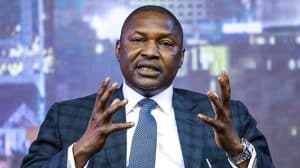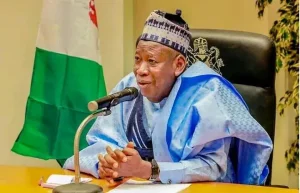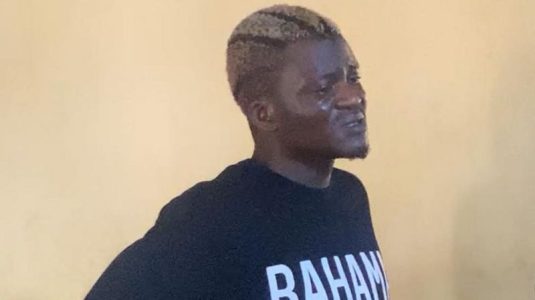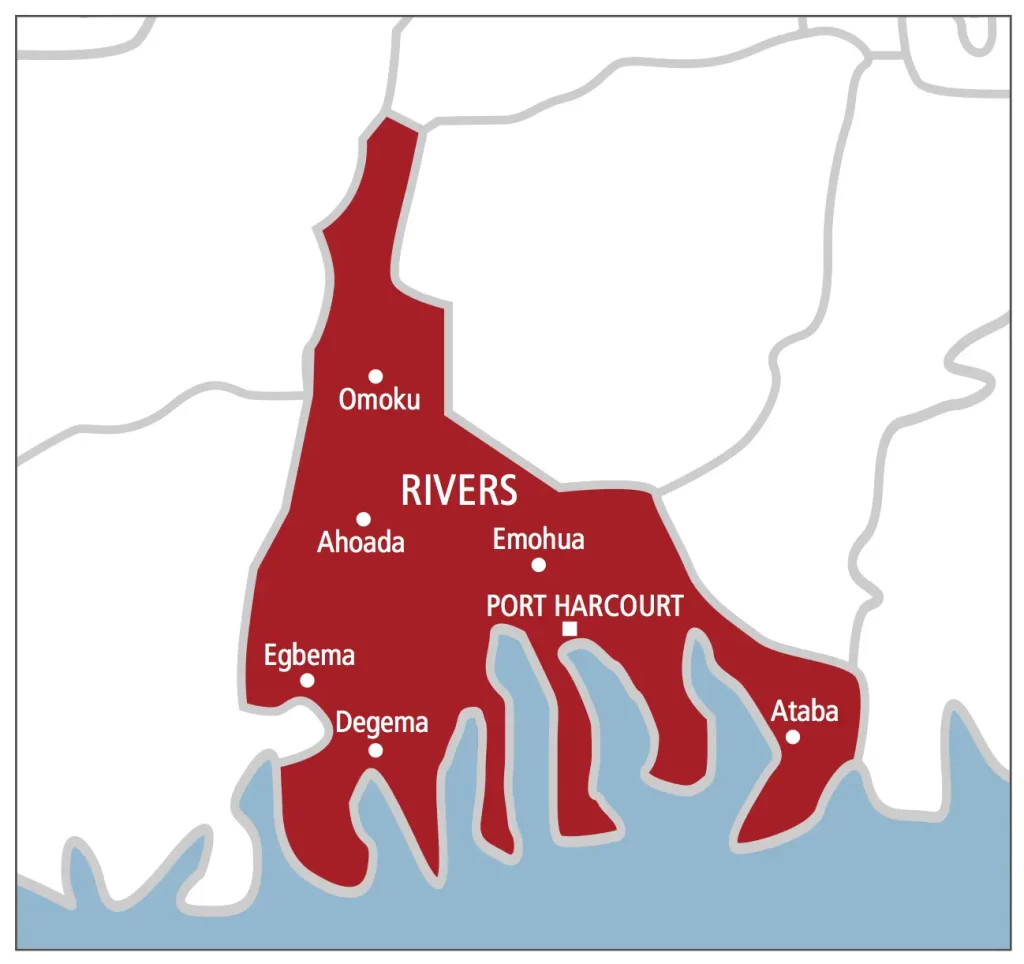Job Amupanda in the National Assembly, Windhoek, 8 April 2025For our ancestors and living legends,Ondje yomakombo, Nehale lyaNdengu naNuukongoWhen Omukwaniilwa Iitana yaNekwiyu died on 26 September 1884, the throne of Ondonga went to Kambonde kaMpingana the following day, on 27 September 1884.Omukwaniilwa Kambonde aligned himself with Boers who visited him, accompanied by missionary Martti Rautanen, a few months after becoming the king of Ondonga. The Boers came to negotiate for the land to settle.
On 21 April 1885, king Kambonde sold a piece of land known as Oshaandashongwe measuring 2 500 square kilometres (more than 200 000 hectares) in present-day Otavi and Grootfontein. He sold this land to a Boer trader called William Worthington Jordaan for 300 British pounds, 25 rifles, one ox and a barrel of gin.Under King Kambonde, many Europeans arrived in Ondonga and Christianity spread.

Missions were established in Ondangwa in 1890, Ontananga in 1900, and Oshigambo in 1909.King Kambonde’s younger brother, Nehale lyaMpingana, Ondje yomakombo, Nehale lyaNdengu naNuukongo, was unhappy about his brother’s land transactions with white settlers. In a bid to resolve the conflict between the brothers, Mpingana yaShimbu and his wife Namupala gwaNangombe gave young Nehale his own ward at Uutumbe, distanced from his brother’s capital.
When he arrived at the designated area, he instructed his delegation to instead go to Oshitambi. Nehale affirmatively repossessed eastern Ondonga and proclaimed it his kingdom with its capital at Onayena. Western Ondonga, what was left under king Kambonde, became known as Onamayongo.
After purchasing Oshaandashongwe in 1885, Jordaan proclaimed the area the ‘Republic of Upingtonia’, named after the prime minister of the Cape Colony, Thomas Upington. In the subsequent year of 1886, Nehale, Ondje yomakombo, swiftly took action to dismantle and quarantine this Republic, launching an attack and killing Jordaan, marking the end of this so-called Republic of Upingtonia. From 1904 to 1908, various communities, particularly in central and southern Namibia, stood up against German colonial forces.
It was in this era that the first genocide of the 20th century occurred. Nehale was not left behind. On 28 January 1904, he launched a surprise attack on the German fort at Amutuni lyomanenge, wrongly called ‘Namutuni’ in contemporary discourse, forcing the Germans to retreat and abandon the fort.
The German fort at Amutuni lyomanenge was the last advancement towards Owambo. No settlers advanced further to occupy land and set up commercial farms as they did in other parts of the country through mass murders, rape, and other violent acts.History thus teaches that the oppressor succeeds through local agents in power, particularly those with an unquenchable thirst for material possessions.
Nehale teaches us testicular fortitude in the protection of collective interest in that, where leadership goes astray, revolutionaries must stand up to provide an alternative path to freedom. Had it not been for his testicular fortitude, the colonial settlement footprint would’ve been visible across northern Namibia. Nehale, though youthful, was guided by elders such as Amupanda gwaShiponeni, Shivute shaNdjongolo, Namupala gwaAmoomo, and many others.
For them, fortitude and capabilities mattered more than age.We enter the eighth parliament standing on his shoulders and inspired by his testicular fortitude.Gwanale – Principle above the StomachGwanale Namupala’s beauty captured Omukwaniilwa Martin yaAshikoto, leading him to take her as one of his wives in the early 1940s.
Her mother, Ishiwe yaShindongo, died when she was very young. It was her father, Hamunyela gwaShuumbwa, and her grandmother, Nantinda yaAndapo, who orchestrated her traditional wedding miitsali at Onambeke to Martin yaAshikoto, who would become king of Ondonga from 1960 to 1967. Gwanale was unhappy with the marriage.
She says, “otwali mo oyendji twafa iikombo (we were many like goats).” Her particular concern was that one of the seven wives, Katrina kaLeonard, was her relative from the Aakwaniilya clan. She ran away to hide at her relatives in Oukwanyama.
Several times, Martin’s men came to find her and gave her back. They gave up when she kept getting away.She then settled in Ekolyanaambo and got married to Adolf yaElia lyaNdafenongo.
Gwanale and Adolf’s daughter, Gwaandolo Vanyenga Teopolina, married Ndakola yIinukwa yaAshivudhi in Omaalala. Getting married in the royal family meant access to opulence and being treated with royalty. Gwanale was not concerned with fame or opulence.
The principle and her discomfort with being married to the same man as her close relative mattered more. She stood up to an Omukwaniilwa.Gwanale’s journey, and the subsequent events, provide important lessons that principles must always be above the stomach.
She maintains the same principles when I spoke to her this morning. More than 100 years later, she narrates these events and remembers the dates and actors with precision. I enter this eighth parliament standing on her shoulders and inspired by her principles and courage.
Ndakola yiInukwa – Fearlessness, Preparedness and SacrificesNdakola yIinukwa yaAshivudhi was a freedom fighter operating underground and transported freedom fighters into exile. One night in 1979, other operatives came to get him in the middle of the night. His wife, Gwaandolo Vanyenga Teopolina, was breastfeeding their youngest daughter named Nosurrender.
Ndakola still hasn’t come back after 46 years, and no one is sure if he is still alive or dead. At age 32, he prepared for his departure, both in symbol and actions. He told his wife, “Tiopo, ohiikasa, ino kondjela iinima yaantu” – cautioning his wife to avoid inheritance feuds with her in-laws after his death.
His caution was accompanied by the land he prepared for his wife and children. His wife resides on this land today with her children and grandchildren.When Ndakola disappeared and never returned, his wife was only 29 years old, with seven children.
He teaches us fearlessness, preparedness, and sacrifices. I stand on his shoulders, inspired to fulfil our generational mission.Gwaandolo naAune Kashiimbindjola – Mokahwa wadhina omo ngaa muna ndimbaAune Luice Kashiimbindjola, the firstborn of Gwaandolo and Ndakola, was only 10 years old when her father left, never to return, on that fateful night in 1979.
She endured a life of poverty with her 29-year-old mother and her six siblings. She joined her mother in selling goods to make ends meet. She was never employed by anyone and continues to sell clothes to this date.
She paid for the education of her siblings and her two sons.In 2025, people still ask if she is really the mother of her son. Her response is always the same: “Mokahwa wadhina omo ngaa muna ndimba.
” She is her son’s biggest fan. Aune Kashiimbindjola is an embodiment of determination, commitment, and love. The mothers selling clothes should know that nothing prevents their children from becoming university professors.
I come to the eighth parliament standing on her shoulders, inspired to fulfil our generational mission.Those Who Shaped Our Politics: “Even the highest office in the land can be challenged.”In 2006, I came to the University of Namibia (Unam) to read for my first degree – a bachelor of arts in history and political studies.
Although I was accustomed to student leadership, having become a deputy headboy at Iipumbu SSS at 14, leading 20-year-olds, I got introduced to radical politics at Unam. I still recall how Wise Immanuel and Archie Shipanga led student struggles and faced president Sam Nujoma, Unam chancellor at the time. We one day woke up to a circular by the vice chancellor pasted on campus singling and isolating Wise and Archie, our leaders.
Those recruited by management proclaimed that Wise and Archie were buried. To the surprise of many, Archie wrote a response circular pasted all over campus stating that he won’t surrender. His response included a passage that stated, “.
..even the highest office in the land can be challenged.
” I was so proud and inspired by Archie and Wise. They shaped my politics. I was happy to see Wise rise to his rightful place, from the periphery to become a minister of justice and labour relations.
The Wise seen over the years in corporate circles is a softened Wise. I hope for the return of Wise, the revolutionary, who shaped and inspired my politics.There were others, beyond the radicals, who inspired me.
Kadiva Nghipondoka (now Hamutumwa), our student representative council (SRC) president, was so articulate and spoke with clarity of purpose. Although not as radical as Wise and Archie, her strategic approach and posture inspired me. As I listened to her, I wondered if I will one day be as articulate.
I am yet to see if this goal is achieved. Wise got elected as SRC president in 2007, and I joined the SRC in 2008, becoming the SRC president in 2009. To Wise, Archie, Kadiva, and others, in case you are not aware, you inspired and shaped my politics.
Emanya lyokorupupu kwasikama ndjikitiI met Dr Tjitunga Elijah Ngurare during my days as SRC president in 2009. Our paths crossed later in 2011 after returning from the University of Stellenbosch in South Africa. We served in the Youth League; I was spokesperson, and he was secretary.
We successfully and unsuccessfully sought to transform the former liberation movement to tilt to the left and bring about real politics of emancipation, characterised by solving the most basic challenges of our people. The capitalist faction moved fast to liquidate and quarantine us. The situation became untenable.
I decided to pursue alternative paths to freedom outside the league. This led to my suspension and subsequent expulsion, together with Dimbulukeni Nauyoma and George Kambala. Unlike others, Dr.
Ngurare did not distance himself from us. This cost him. He was attached to our expulsion.
The capitalist faction believed that he is the engineer of all our activities, a tragedy of imagination.I once drafted a letter to president Pohamba to exonerate him, stating that our actions had nothing to do with him. The mistake I made was to share the letter with him.
He took the letter and tore it up. He basically refused a passport and a visa to ‘good books at Club House’. We had nothing to offer him.
I always felt that I brought problems/trouble for him. The capitalist faction unplugged him from all economic sources, including boards and other economic avenues, even those not linked to the party. The plan was to squeeze him, so he would come back crawling and begging for mercy.
True to his principles, as he transmitted to us, he did not surrender nor sell his soul. He remained in the wilderness, saying oxygen is provided only by God.I remember when he landed a job as a director of rural water supply, after attempts to block him.
During our discussion, he made a statement that stayed with me, saying; “it was tough coma; your children want you to buy them things you cannot afford, and you can’t say you can’t afford.”I do not claim that he is a saint. He is, after all, a politician in a party that devours its own children.
Mine is a human reflection on a son of Africa and Namibia, born of the Kavango peasants. A leader who shaped my politics and stood by me in difficult times and sacrificed his career for me and other youth. That he is now prime minister, and we strangely reunite here again, is a testament to the importance of principle above the stomach, like what Gwanale did during her tribulations with Omukwaniilwa Martin gaAshikoto.
The story of Dr Ngurare deserves a separate reflection, as will be done in the fullness of time.Bernadus Clinton Swartbooi inspired us both during his time in the youth league and later with the Landless People’s Movement. McHenry Venaani joined this Parliament in his younger days, debating formidable freedom fighters who never failed to use the Democratic Turnhalle Alliance’s chequered past to dismiss him.
But he never wavered. Today the same freedom fighters from the ruling party publicly praise him. His journey is inspiring.
I wish I had an opportunity to know Hidipo Hamutenya, a political scientist and a tactful politician. In recent years, I was in a bus with his two sons, Kela and Erick Hamutenya, telling them their father’s politics intrigued me. I hope they are taking up the task of writing his comprehensive history, which is still lacking to date.
During the efforts to quarantine and liquidate us, I received wise advice from the late Theo Ben Gurirab. He wanted me to join diplomacy. Despite our occasional bickering, Helmut Angula taught me the things I must avoid in politics, including the strategy used by opponents called ‘early elimination’.
Former prime minister Nahas Angula was instrumental in offering an escape route. In his office as the then defence minister, he advised that Dr. Ngurare and I retreat into academia for he saw a powerful mob determined to cut our throats.
I took his advice and the rest is history. There are many other veterans who shaped our politics. I am grateful.
As a political science student, I studied paths of great African leaders who first sharpened their education in order to use the knowledge to transform their societies and nations. Even during difficult times, President Nujoma studied via correspondence. Ghana’s Kwame Nkrumah and Tanzania’s Julius Nyerere are distinguishable examples.
Nkrumah studied economics, sociology and later philosophy at Lincoln University, and the University of Pennsylvania, respectively. He became a lecturer at the latter university. Nyerere sharpened himself at Makerere University and the University of Edinburgh.
50 years after his demise, Nkrumah continues to be a formidable intellectual and political force, surpassing the stature of current leaders. More than 25 years since his departure, Nyerere’s name remains written in gold among Africa’s greatest thinkers and leaders.These leaders were and remain my compass.
Antonio Gramsci, the great Italian Marxist philosopher, distinguished two types of intellectuals: organic and traditional. Traditional intellectuals see their role as limited to the lecture rooms and providing commentary to journalists. Organic intellectuals are different; while also operating in lecture rooms, they take on additional tasks of asking and/or answering questions perplexing society.
They lead social actions. I belong to this group. For this journey I pay tribute to professor Andre du Pisani, professor Lesley Blaauw, professor Joseph Diescho, professor Henning Melber, professor Lazarus Hangula, professor Osmund Mwandemele, professor Erika Maass, Dr Alfredo Hengari, Dr Peya Mushelenga, Dr Audrin Mathe, Erika Thomas and others who were instrumental in my journey.
For them, I am now able to combine political theory and political action. Indeed, to combine both Frantz Fanon and Thomas Sankara – after whom my two sons, Sankara Uukongo Shipululo and Fanon Iitana Shipululo, are named.Things change – things end.
Why are colonial laws, habits and instruments, such as the 1896 redline, still dominant today? The truth is, even the best soldier, talented fighter and astute commander gets old and tired. His bravery and glory days become memories and stories. Those who believe otherwise need these lines by the South African political scientist Prince Mashele:What is more important is to accept that what is gone is gone.
The children who refuse to leave the graveside after burying their father who was a breadwinner are bound to succumb to starvation. It does not matter how violent you sob; the dead will never return.If Mashele doesn’t deliver, Raymond Reddington from the series The Blacklist may assist.
Listen to him: “things end. Sometimes, despite our best efforts and best intentions, or sometimes because of those efforts and intentions, things end. So something else can begin.
” A visit to elder Kanana Hishoono, former political advisor to President Pohamba, comes to mind when he introduced to us ‘the law of negation of negation’, a concept in Marxism explaining how the new replaces the old, leading to a higher stage of social organization.The armed soldier has fulfilled his historic mission, and for that, we remain deeply grateful. But today, we must ask: Does the great soldier, and the institution he represents, still serve as the most relevant instrument for addressing our current challenges? In 2014, we responded to that question by picking up his spear, not to replicate the past, but to carry forward a renewed struggle in a transformed context.
We honour the legacy, but we do not linger at the graveside of the past breadwinner. Indeed, every era concludes – so that a new one may begin. This is our orientation as we enter the eighth parliament.
Colonialism was not merely about foreign flags flying over our soil. It was, at its core, the occupation, control, and domination of a sovereign people by a foreign power. Independence was meant to end this occupation, this control, this domination.
And yet – decades later, it is clear that only the physical occupation ended. The control and domination of the former colonies by the colonising power continues. Decolonial scholars coined the term ‘coloniality’ to describe the continuity of colonialism after independence.
Coloniality manifests in many ways. Three are relevant for our context: The first is coloniality of being – the internalised sense of inferiority, the way the colonised continue to view themselves, and each other, through the eyes of the coloniser. What Bob Marley sang as ‘mental slavery’.
Decades after the lowering of the colonial flag, the colonised people still view themselves and each other as inferior to the colonizer.The second is ‘coloniality of power’, which refers to the institution of power, the laws and governance methods that still reflect the interest, agenda and outlook of the colonizers. Institutions such as the parliament and the judiciary still carry, in their DNA, the designs and interests of a colonial past, and they struggle to shake off the colonial software.
The third is ‘coloniality of knowledge’ refers to our education system that continues to privilege colonial knowledge systems while suppressing local knowledge systems. We still treat indigenous knowledge systems as inferior, outdated, or irrelevant. Because of these colonialities, the colonized people have been dismembered from their history, knowledge and subjectivities.
We come to this eighth parliament to ensure that the dismemberment of Africans from their history, memory, knowledge and subjectivities ends. We come to repudiate coloniality of power, coloniality of knowledge and coloniality of being. We desire a free parliament and not a colonial Parliament.
A Namibian Parliament, and not a parliament in Namibia.We stand today in the shadow of a deeply contradictory economy. We have a small population, yet we battle a high unemployment rate.
While agriculture is the largest employer, it only contributes 6% to our gross domestic product (GDP). We invest billions into higher education every year, yet our country only has fewer than 70 000 professionals representing just 12.5% of the labour force.
We are the world’s third largest producer of uranium, yet we remain energy insecure – importing electricity from South Africa and Zambia. We are classified as an upper-middle-income economy, yet over 80% of our economy is in the hands of whites who are 6% of the population. This same 6% owns more than 70% of the agricultural land.
These are not just statistics. They are symptoms – symptoms of a state that has been present, but not always purposeful, active but not always transformative. These contradictions can be cured by a capable developmental state.
This is a state with the following characteristics; (a) a decisive solid leadership – not just in power, but in command of an ideological direction; (b) a clear national agenda to pursue inclusive economic transformation and development; (c) an interventionist state that actively steers economic growth through industrialisation; (d) a competent bureaucracy underpinned by a meritocratic system, not on patronage; and (e) a political leadership that is able to bring together productive forces (especially labour and capital) to conclude an economic pact to support industrialisation. We come to this eighth parliament ready to champion and advocate for a developmental state. A parliament complicit in a neoliberal and capitalist order causing the pain and suffering of our people must be history.
We do not regret being on these benches. We are also not afraid to face our own, including our mentors and those we held in high regard. We are a hot iron on which no minister will sit on.
We are the small axe ready to chop a big tree. We are not born to oppose, just as we were not born to blindly support. We are here to fulfil the generational mission.
Where it is needed, we will help and assist. Where wisdom is required, we will teach, offer advice and solutions. We don’t mind getting dirty for Namibia.
We will also push the wheelbarrows and carry bricks if need be. We know it will not be easy, but be rest assured that we are ready. The musical group PDK prepared us with their powerful song titled ‘Ngeekwashi’.
Namibia, our country, is like the water that PDK sings about. When systems are dirty, we will clean them. When policies are toxic, we will detoxify them.
When the political temperature is high, we will wait, and or handle it to cool down. But we will never give up on our country.Long live the wonderful people of Namibia.
Long live the Republic of Namibia.Long live the formidable Affirmative Repositioning!Prof.-Amupanda-Standing-on-Shoulders-of-GiantsDownloadThe post Amupanda’s first address to parliament: Inspired by ‘testicular fortitude’ appeared first on The Namibian.
.
Politics

Amupanda’s first address to parliament: Inspired by ‘testicular fortitude’

Job Amupanda in the National Assembly, Windhoek, 8 April 2025 For our ancestors and living legends, Ondje yomakombo, Nehale lyaNdengu naNuukongo When Omukwaniilwa Iitana yaNekwiyu died on 26 September 1884, the throne of Ondonga went to Kambonde kaMpingana the following day, on 27 September 1884. Omukwaniilwa Kambonde aligned himself with Boers who visited him, accompanied [...]The post Amupanda’s first address to parliament: Inspired by ‘testicular fortitude’ appeared first on The Namibian.














